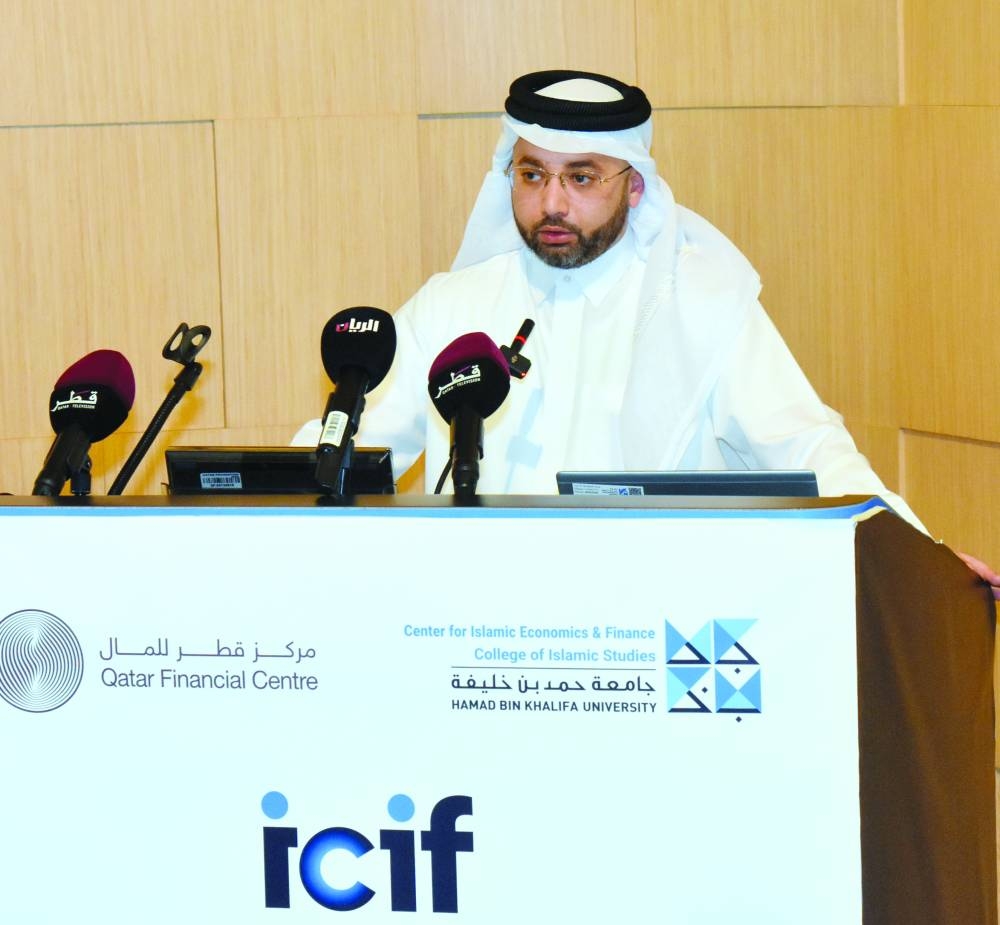Islamic finance can prove to be a persuasive tool for addressing the global sustainable development goals, according to a top official of Qatar Financial Centre (QFC).
Addressing the sixth International Conference on Islamic Finance, Nasser al-Taweel, deputy chief executive officer and chief legal officer, QFC, said the world is confronted by important issues that demand urgent attention, such as the growing gap between rich and poor countries and the return of extreme poverty.
Furthermore, the ongoing climate challenges are rapidly approaching a critical threshold, leading to concerning impacts on the earth's ecological balance and stability, according to him.
"In these critical times, Islamic finance can be a compelling tool for addressing the global sustainable development goals, propelling us toward the sustainable and equitable socio-economic condition we all desire," he said at the conference, jointly organised by Hamad Bin Khalifa University (HBKU) and QFC.
Islamic finance principles are inherently aligned with sustainable and equitable financial practices, discouraging investments that harm the environment or exploit vulnerable populations, he added.
Through the promotion of ethical and socially responsible financial activities, facilitation of financial inclusion, and support for sustainable projects, Islamic finance institutions can make substantial contributions to global Sustainable Development Goals (SDG) endeavours, according to him.
The QFC official highlighted that the United Nations' recent report on the 2030 Agenda for Sustainable Development paints a clear picture of reversed progress across a number of its 17 goals, owing to a number of crises taking place in different parts of the world.
“This sobering assessment is echoed by the World Economic Forum, which likewise signals a concerning reversal of progress in critical areas,” he said.
Exploring ways to harness Islamic finance' s vast potential to address pressing environmental and socio-economic issues; he said "we will delve into emerging technologies as pivotal drivers of financial innovation, unearthing substantial opportunities for Islamic finance to expand its reach, enhance accessibility, and streamline processes, all while upholding its unwavering ethical foundations."
"Furthermore, we will explore ways to make Islamic financial services accessible to a broader spectrum of society in order to promote financial inclusion. At the same time, we will look into strategies that ensure Islamic finance instruments are employed judiciously in funding sustainable and socially responsible projects that align seamlessly with these principles," he added.
He said the QFC and HBKU share a common vision for the advancement of Islamic finance and this shared commitment is evident in its partnership to bring this annual event to fruition.
"Our dedication extends to creating an environment conducive to the flourishing of Islamic finance, one that fosters collaboration, knowledge exchange, and exposure to novel ideas and technologies that drive industry growth," he said.

Nasser al-Taweel, deputy chief executive officer and chief legal officer, QFC. PICTURE: Thajudheen

